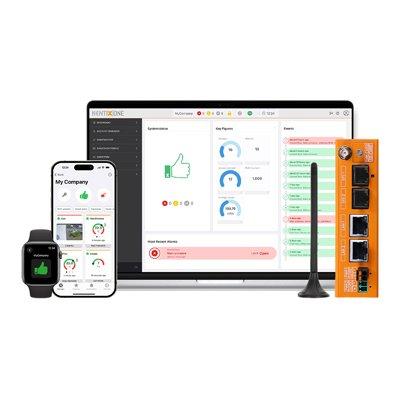Check Out Our Special Report On Casino Security
How Is The Role Of Distributors Changing In The Security Market?
- Distributors adapt to evolving security market impacts on supply chain dynamics.
- Role of distributors shifts, enhancing products availability for systems integrators.
- Industry changes redefine distributors' critical positions in physical security supply chain.
Editor Introduction
Distributors have traditionally played an important role in the physical security market, ensuring ready availability of products that systems integrators need to complete their projects. But a changing industry has had dramatic impact all along the supply chain of which distributors are a critical link. We asked this week’s Expert Panel Roundtable: How is the role of distributors changing in the market, and what is the impact?
The integrators are not seeing the value of buying from a distributor as most of the security distributors are not holding stock on the products. The distributors are drop-shipping the majority of the products to the integrators. The integrators are under huge price pressures due to the commoditization of the cameras and /or components in the solution and need to be as aggressive as they can to win the project and maximize margins.
Distributors are increasingly selling product online, and integrators appreciate seeing products and pricing 24/7. To build long-term relationships with integrators and bring real value to the market, however, distributors should gear up to do far more than take sales orders. The more valuable role of the distributor is to be a true partner for integrators — a partner that actively seeks ways to increase their business. At WESCO, we have several ways we help our integrator partners. Our dedicated Business Development team generates new business for integrators by creating proactive telemarketing campaigns targeting specific verticals and pre-qualifying leads. Our Global Accounts team services many top-tier companies, and other teams support a wide variety of market sectors—in government, utility, oil and gas, and many others. All of these relationships with different customers enable WESCO to uncover opportunities and make new business connections for integrators, which is a true win-win for all.
The adoption of open standards and platforms are changing the distribution model as they become more popular across the market, reducing barriers to entry for competing manufacturers. This drives down the price of many different security solutions across distribution centers, including state-of-the-art video event management software (VEMS) and analytics tools. The reduction in price and increase in the number of interoperable solutions both benefit the end user by allowing flexibility, cost-effectiveness and ease of integration throughout systems, providing more business insight and streamlining operations. As software-based systems open up to more extensive integration capabilities, distributors will need to adapt to connected security environments and move away from traditional supply chain practices.
The changes in the distribution market mirror the transformations in systems integration contracting. It’s no longer about hardware. Successful companies know the future is about value-added services, and distribution is no exception. Now, because of competitive pressure, consolidation and online purchasing, distributors have stepped up with design, engineering, product procurement assistance and marketing support. Savvy security integrators don’t mind spending a little more if they can establish a true partnership with a distributor who will be there to guide them when necessary during specification and deployment. Distributors today have to cast a wide net and offer many types of assistance to the systems integration community. For the smaller integration firms, support may mean engineering design, such as assistance with blueprints, diagrams and job costing. For larger companies, it may mean finding hard-to-procure products, dealing with product distribution scheduling timelines, or working with a manufacturer to address a system challenge or issue.
As a systems integration company, we rely on distributors for a broad range of service and liaison functions. For a mid-sized growing company like ours, we look to distributors for inventory management, products procurement and sourcing and general account management. They source hard-to-find parts or assist with products logistics for large integration projects. Distributors are a business partner on the product side – especially important if there’s an issue and they have to go to battle on my behalf. They are an extension of our procurement team and a manufacturer liaison. Distributors also assist with product management. Product pricing is what it is. You can’t buy manufacturer direct in many cases. So I count on this value from distributors.
Editor Summary
Commoditization is lowering prices throughout the market, and the need to be competitive leaves less possible margin for a distributor. Distributors, like systems integrators, have learned they can differentiate themselves in the market by increasing levels of service. Tighter margins and the need to provide more services are squeezing distributors, but it’s really just another reflection of how the market is changing throughout the sales channel.
Expert commentary
Security beat
The Key To Unlocking K12 School Safety Grants
DownloadHoneywell GARD USB Threat Report 2024
DownloadPhysical Access Control
DownloadThe 2024 State Of Physical Access Trend Report
DownloadThe Security Challenges Of Data Centers
DownloadKentixONE – IoT Access And Monitoring For Data Centers
Climax Technology HSGW-Gen3 Modular Smart Security Gateway
Delta Scientific DSC50 ‘S’ Barrier: Portable, Crash-Rated Vehicle Mitigation Solution
























